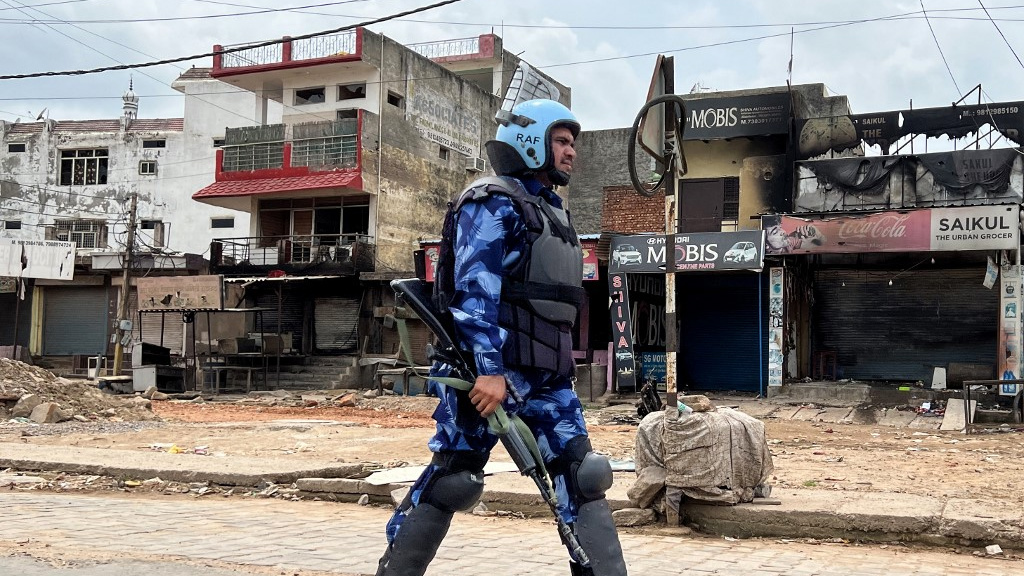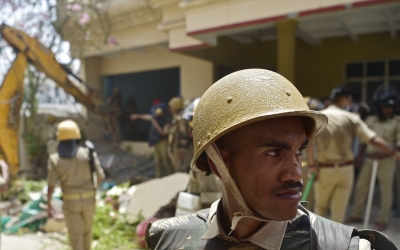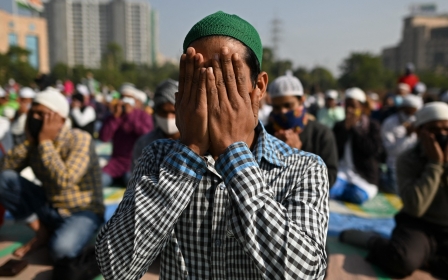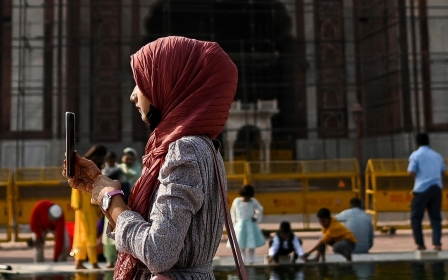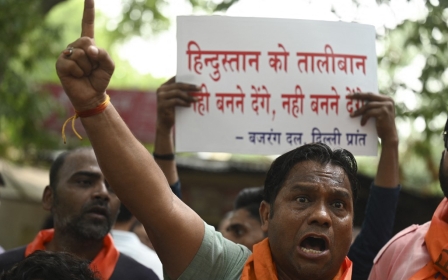India: Why Modi is fuelling anti-Muslim riots ahead of 2024 elections
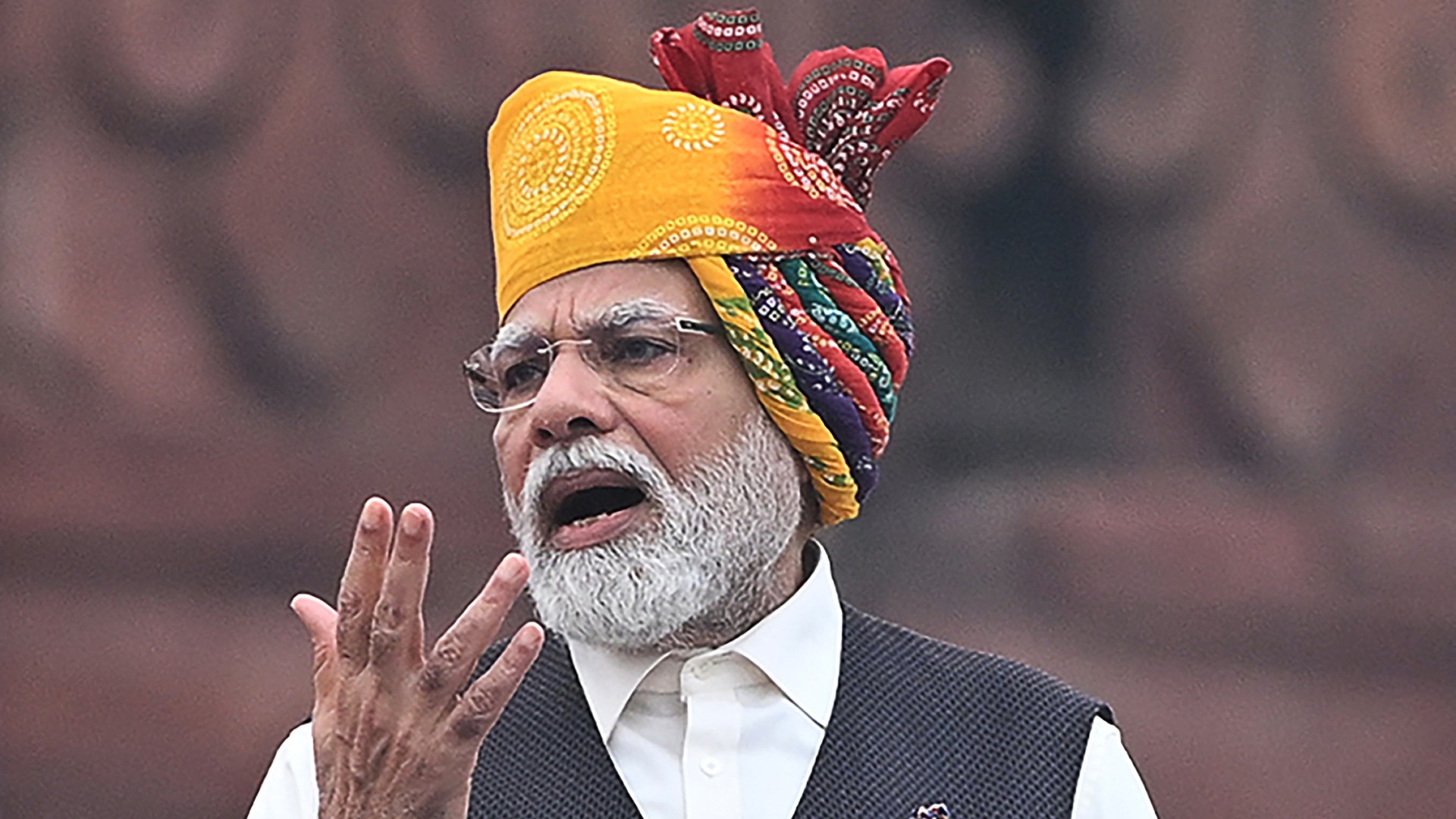
This summer, Hindu nationalist groups led a religious procession through a Muslim-majority region of India’s northern state of Haryana, triggering communal riots. The fresh spate of sectarian violence marked a continuation of the ongoing onslaught on Indian Muslims in the country, aligning with the Hindutva strategy of polarising voters ahead of crucial general elections.
The communal violence in Haryana’s Nuh district saw crowds targeting Muslim-owned businesses, torching stores, cars and a local mosque. At least six people were killed, while tensions spread to other local districts.
Within a few days of the riots, bulldozers swiftly descended upon Nuh’s Muslim community, demolishing hundreds of homes under the pretext that they were illegal structures. More than 1,200 structures, primarily owned by Muslims, were reduced to rubble.
Haryana’s home minister, Anil Vij, had said that “the bulldozer could also be part of the remedial action” against those who participated in the violence, but authorities later asserted that the structures were built unlawfully - a claim challenged by locals, who said they received no prior notice.
The demolition campaign echoes a recurring pattern in states governed by the ruling Hindu nationalist Bharatiya Janata Party (BJP), where bulldozers have become emblematic of the machinery employed to enforce law and order. They function as an extrajudicial tool to dismantle Muslims’ homes, enterprises and places of worship.
New MEE newsletter: Jerusalem Dispatch
Sign up to get the latest insights and analysis on Israel-Palestine, alongside Turkey Unpacked and other MEE newsletters
On 7 August, the Punjab and Haryana high court halted the demolitions, noting: “The issue also arises whether the buildings belonging to a particular community are being brought down under the guise of a law and order problem, and an exercise of ethnic cleansing is being conducted by the state.”
The aftermath of the communal violence unfolded in a familiar sequence: Muslim families being compelled to flee their homes, law enforcement engaging in arbitrary detentions of young Muslims and community figures, and authorities demolishing the homes of those accused of inciting violence.
Pretext for violence
The events preceding the Nuh violence also aligned with another recurring pattern, emphasised in a report released this year by the Citizens & Lawyers Initiative, which highlighted striking “commonalities” in the weaponisation of religious occasions as a pretext for perpetrating violence against minority communities.
The report found that communal violence often led to state-backed actions, including illegal demolitions of homes and shops, targeting individuals labelled as “rioters” or “antisocial” elements. This state-sponsored violence has fuelled a “crisis of displacement” for Muslim families, who have been left homeless or forced to flee for fear of further state harassment.
The events of Gujarat resulted in Modi's international political isolation ... But the BJP's political engineering to polarise elections has continued unabated
India’s political history is rife with caste, ethnic and religious conflict, which right-wing Hindu nationalist parties have weaponised to mobilise the Hindu electorate ahead of major votes. Since Prime Minister Narendra Modi’s rise to power in 2014, mounting violent extremism against religious minorities has endangered India’s commitment to secularism, with frequent attacks on journalists, civil society, and critics of Modi and his ruling party.
Modi is a lifelong member of the Rashtriya Swayamsevak Sangh (RSS), a militaristic organisation that acts as an umbrella group for various Hindutva groups. It is an open secret that Modi and the BJP have utilised the organisational apparatus of the RSS and its affiliates to orchestrate communal conflicts in order to reap political benefits ahead of critical polls.
Analysing the effects of riots on the vote share of Hindu nationalist parties, a 2014 study by Yale University researchers found that “the BJS/BJP saw a 0.8 percentage point increase in their vote share following a riot in the year prior to an election”.
The study, which looked at elections between 1962 and 2000, found that “the election of a single Congress [Party] MLA in a district brought about a 32 percent reduction in the probability of a riot breaking out prior to the next election”, adding that there likely would have been 10 percent more riots and thousands more casualties if Congress candidates had lost all close elections.
'Force multiplier'
Such a trend seems to be persisting in the 21st-century era. After the deadly 2002 Gujarat riots, Modi - who was the state’s chief minister during the massacre that killed hundreds of Muslims - began to consolidate his grip on power, launching himself as a strong Hindutva leader.
The events of Gujarat resulted in Modi’s international political isolation, with the US, UK and several other European countries denying him a visa for years afterwards. But the BJP’s political engineering to polarise elections has continued unabated.
After this summer’s violence, an independent fact-finding commission found that RSS-affiliated groups deployed “storm troopers … to act as a force multiplier towards fulfillment of political expedience”.
“The aggressive ingress by the Hindutva communal hordes into the only Muslim-dominated district in Haryana and the National Capital Region was nothing but a calculated game plan to [bolster the] BJP’s prospects in the electoral duels in the run-up to, and further in, the 2024 general elections,” noted the commission, which was made up of journalists and human rights advocates.
This viewpoint was echoed by political analyst Rajesh Ramachandran, who has argued that the communal riots in Nuh revealed a situation in which incumbents facing electoral vulnerability felt it necessary to indulge in communal polarisation. In this context, Hindutva “shock troops” were used as the BJP’s “force multipliers”.
Muslims, he noted, have been “left at the mercy of regressive religious leaders” who in turn become vote contractors: “These communal vote contractors, who offer their services to the highest bidder, also get political patronage and police protection to run their illicit businesses with complete impunity.”
The views expressed in this article belong to the author and do not necessarily reflect the editorial policy of Middle East Eye.
Middle East Eye delivers independent and unrivalled coverage and analysis of the Middle East, North Africa and beyond. To learn more about republishing this content and the associated fees, please fill out this form. More about MEE can be found here.



